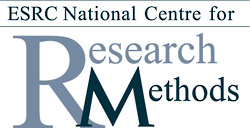University of Sussex / National Centre for Research Methods 
Comparative research has at its heart the ambition of generalisability and of having a breadth that is unavailable to case study approaches, but it is hampered by the practical difficulties of funding and facilitating widescale comparative projects. This tension is usually resolved either in favour of depth without breadth (through in-depth narrowly-oriented projects) or breadth without depth (through large, often quantitative, cross-national comparative projects seeking to garner basic data from multiple cases). The work of King, Keohane and Verba has forced comparative researchers to recognise the costs of either of these strategies and therefore we need to think more creatively about meeting the challenge. This workshop is focused around the particular issues that this trade-off raises for comparative researchers. The aim of the workshop is explore two potential (but very different) solutions to this problem. The two approaches identified and discussed in the seminars would be: (1) The use of Boolean analysis and fuzzy set analysis. This is a technique that can be used to maintain empirical rigour through looking intensively at a small number of cases and through formal logical analysis can yield greater empirical purchase on the small data size through the use of fuzzy case logic by Ragin; (2) The uses and challenges of multi-researcher multi-case multi-site analysis (MRMCMS). Using a large number of researchers from different intellectual contexts to come together to provide broad but in-depth comparative analysis of particular cases offers the hope of both in-depth and wide-reaching empirical research. But it also brings with it the challenges of (a) co-ordination and (b) synthesis.